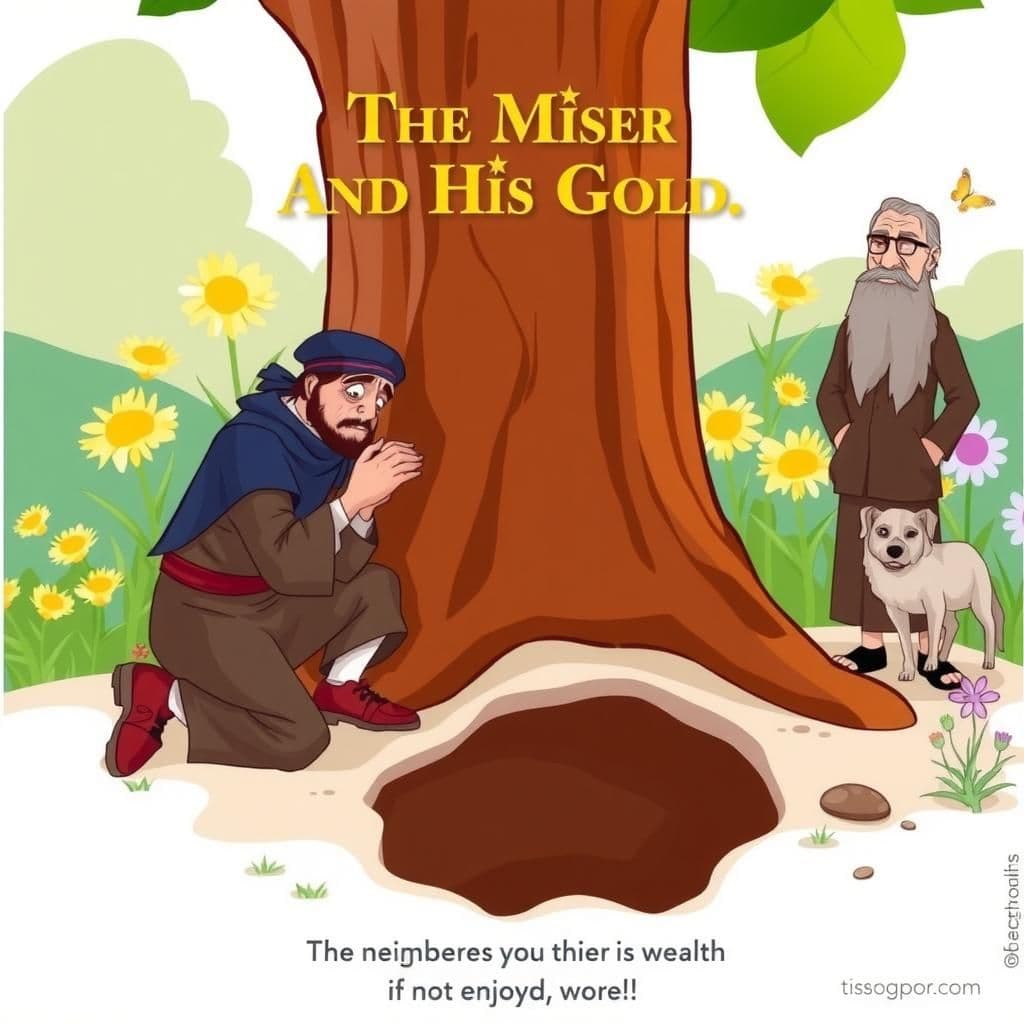The Miser and His Gold
A Miser hides his gold at the foot of a tree, visiting it regularly to gloat over his wealth but never using it, illustrating a classic moral lesson. When a robber steals the gold, the Miser laments its loss, only to be reminded by a neighbor that since he never utilized the treasure, he might as well simply look at the empty hole instead. This tale, one of the top 10 moral stories, teaches that wealth is worthless if not put to use.

Reveal Moral
"Wealth that is not utilized is of no real value."
You May Also Like

The Lion, the Bear, and the Fox
In this entertaining moral tale, two thieves steal a piano but are unable to fairly divide it, resorting to bribing a judge to settle their dispute. When their funds run dry, an Honest Man intervenes with a small payment, winning the piano, which his daughter then uses to train for boxing, ultimately becoming a renowned pugilist. This quick read story with moral highlights the value of integrity and unexpected paths to success in real-life stories with moral lessons.

The Honest Cadi
In "The Honest Cadi," a robber who steals a merchant's gold faces the judgment of a Cadi. Cleverly, the Cadi spares the robber's life by accepting half of the stolen gold as a bribe, resulting in a unique punishment where the robber loses only half of his head, leaving him able to converse. This engaging tale serves as a meaningful story with moral lessons for young readers, emphasizing the complexities of justice and temptation, making it an ideal choice for short bedtime stories with moral values.

The Seller of Images
In this culturally significant moral story, a man attempts to sell a wooden statue of Mercury, claiming it can bestow wealth and riches. When questioned about why he is selling such a valuable figure instead of enjoying its gifts himself, he explains that he needs immediate assistance, as the statue's blessings come slowly. This heartwarming tale highlights the theme of valuing immediate needs over long-term benefits, making it one of the best moral stories.